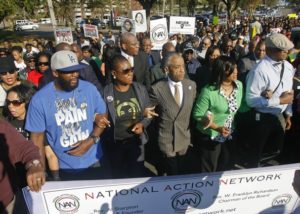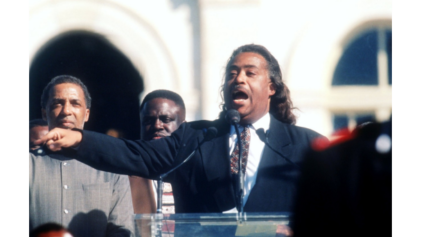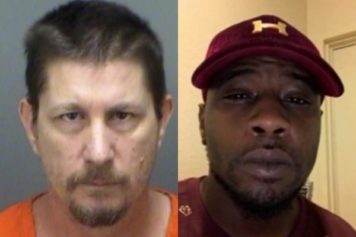
After marching to the steps of the Capitol, the crowd held a rally. Afterward, some of the mourning family members addressed a state Senate criminal justice committee that drew an overflow crowd that had to listen outside the room via a TV hookup.
“To have laws that tell people that they can shoot first and then ask questions later is a violation of our civil rights. I believe that law is inherently wrong,” Sharpton said before the march began. “The law in effect says based on your imagination — if you imagine I’m a threat — you have the right to kill me.”
“Everybody trying to stand in solidarity and show that these laws that don’t apply to us, we’re here to change them,” Tracy Martin, Trayvon’s father, told the Associated Press.
Sharpton said the protesters were focusing on Florida not just because of its controversial shootings, but also because it’s where the “stand your ground” movement began.
“Florida is the first state to enact the law in 2005,” he said. “We came back to where it started to begin where it will end.”
But the Republican-dominated legislature in Florida has shown little interest in making any substantial changes to the “stand your ground” law. For the past two years, Democrats have filed bills to repeal or amend the law, but they haven’t gone anywhere.
There was even a monthlong sit-in last summer by a group called Dream Defenders, which was also at yesterday’s rally. The group was a constant presence at the Capitol, trying to get lawmakers to call a special session to address the law, but Florida Gov. Rick Scott and legislative leaders refused to do so.
While the protesters were trying to appeal to the legislature, Michael Dunn’s attorney Cory Strolla was trying to convince a judge to postpone Dunn’s sentencing until after his re-trial for the murder of Jordan Davis.
Strolla says he is concerned that statements Dunn makes at a sentencing hearing could be used against him in his second trial. The judge is expected to make decision on the postponement by Friday at the earliest.
Dunn faces a maximum of 60 years in prison after his convictions for three counts of attempted murder for shooting into the SUV that contained Davis and three other teenagers. But last month jurors deadlocked on the murder charge for the killing of Davis, prompting prosecutors to vow to retry him.
Strolla also said he is stepping down as Dunn’s attorney, and he asked Judge Russell Healey to appoint public defenders to take over Dunn’s case. He didn’t give a reason.


